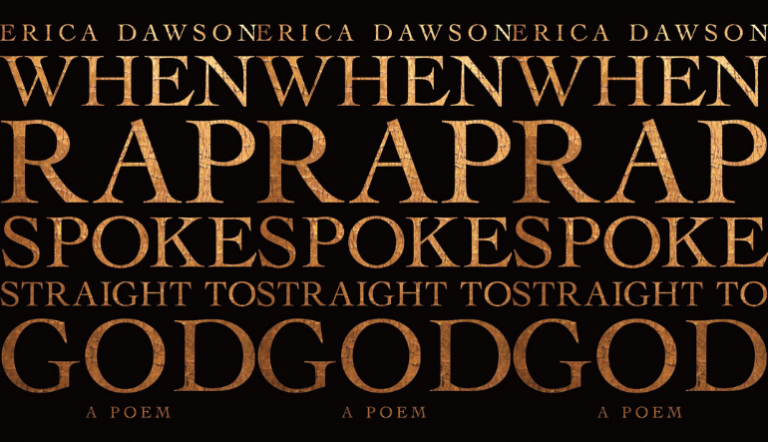Five Fabulist Sentences

“Gulls covered the fence posts and rooftops of Athertown, drew a white caul over the marina, muffled every window with the static of their bodies—and each gull had a burgled object twinkling in its split beak.”
Karen Russell, “The Seagull Army Descends on Strong Beach,” from Vampires in the Lemon Grove
When I think of Karen Russell, I think of the exuberance and hallucinatory imagery that make her so wonderful at writing about childhood. This sentence is rich with both. Our adolescent main character, Nal, is having a dream here—but these gulls are real within the waking world of the story, too, and they do seem to be altering people’s futures by stealing tiny, crucial pieces of their lives. The images in this line, the “caul” and “muffling” and “static,” capture so powerfully the panic of these seemingly slight but cumulatively enormous thefts: each bird is small, each stolen item is small, but the flock and its effects are huge as weather. We watch Nal dream, poised on the threshold of various decisions and limitations in his own life, and we understand him better. The language also makes us dream along with him. Karen Russell’s stories often give me this feeling I’m inside a dream, not quite awake but also more awake than usual.
“Each knot she ties, she tries to remember a person she loves.”
Ramona Ausubel, “Safe Passage,” from A Guide to Being Born
It’s not unusual for fabulist stories to leave me exhilarated and spellbound, but it’s pretty rare for them to make me cry. This one does. It’s about a group of grandmothers who find themselves on a drifting ship in the middle of the sea, without explanation or means of steering, accompanied by crates full of nonsensical items (toilet seats, yellow roses). It’s also about the efforts of one particular grandmother, Alice, to come to terms with the likelihood that this ship is either the afterlife or the passage to the afterlife, and to reflect on her life and all it has been. I come to love Alice so totally over the course of this story, because of how real Ausubel (winner of the Alice Hoffman prize for her story “Fresh Water from the Sea,” in the Summer 2015 issue of Ploughshares) makes her emotional world. This sentence comes from a passage near the story’s end, when Alice is getting ready to lower a rope over the ship’s side and climb down it into the ocean—and when we know enough to grasp the finality of that descent. By this point in the story, we understand the depth of Alice’s love, the weight of the memories with which she loads the knots, as her farewell. There’s something about the image of that ship, and that brave person making her way down the side—alone in spite of so many strong attachments—that’s one of the truest images of death I’ve come across.
“The view from the building’s windows was an unexpectedly nice one, covering miles and miles of marshland so that the mass of drowned flesh looked like water, just muddy water, if not pure then becoming so as it teemed toward the ocean.”
Helen Oyeyemi, “Drownings,” from What Is Not Yours Is Not Yours
The stories in What Is Not Yours Is Not Yours feel ancient, the age of fairy tales, except that they dart off in surprising and modern-feeling directions. They become mysteries that Oyeyemi refuses to solve for us. This sentence—from a story about (among many other things) a tyrant who drowns anyone who displeases him, or whom he just feels like drowning, in the marshland outside his city—has something to say, I think, about why the stories resist neat resolution. Everywhere you look in Oyeyemi’s worlds, there are layers upon layers, a darkness that people themselves often set in motion but that soon stretches beyond them: the way that “drowned flesh” expands and expands and become a feature of the landscape, something much larger and more powerful than the tyrant himself. It only looks picturesque when you aren’t too close to it. Oyeyemi’s mysteries, instead of tying themselves up neatly, grow more tangled and more menacing the longer and closer you look.
“Burdened women are more difficult to place, I’m told.”
Diane Cook, “Moving On,” from Man V. Nature
This story is about a society in which widows and some widowers go to facilities, “shelters,” until new mates can be found for them. Our narrator is a recent widow, still in love with her husband, lost in longing and grief; she’s also a product of her time and place, who is trying very hard to live by the rules in the hopes that they may relieve her pain. So her emotions are visible to us only beneath a veneer of the horrifying conventional wisdom of the world Cook has created. The narrator is a “burdened woman,” and spends the whole story being one. Yet here we see her trying to ready herself to absorb any prescription or proscription that can make her less burdened, that might get her to a happier ending. That “I’m told” is so chilling to me, because it’s so faceless. No one person is telling her this; everyone is telling her this. How can she be expected to hold out against this cold, methodical system, when it’s here in her own voice?
“Think of the underworld as the back of your closet, behind all those racks of clothes that you don’t wear anymore.”
Kelly Link, “The Girl Detective,” from Stranger Things Happen
Kelly Link is the master of making extraordinary things ordinary, familiar as our own faces in the mirror. As part of this story’s puzzling, shifty events, a girl detective goes to the underworld in search of her lost mother. But Link wants this development to land differently than it would if the underworld were just the vast, mythic domain we think we know from old heroic stories. She wants us to take the loss and untouchableness it represents personally. So she has her narrator address us personally, give us instructions: we’re told how to think. The metaphor we’re given is, I think, instantly recognizable: we all have those clothes. We all leave them there, forgotten, for months at a time. None of us thinks too much about what’s behind them, or not until now.
I’ve heard these five writers, and others working today, lumped together as a sort of school: New Female Fabulists, or some variation thereof. In some ways they are, and there’s certainly value in looking at what binds them together. But, as is probably true of most artistic groups we might try to define, the differences amongst these writers feel at least as substantial to me as their similarities. Each pursues her own kind of strangeness. These sentences I’ve collected here function, at least for me, a little bit like the fingerprints of their respective stories, each one unmistakably its author’s own.


